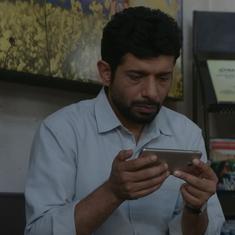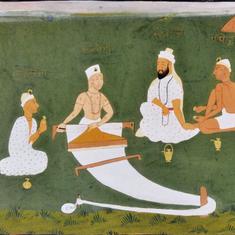America will be rolling out the red carpet for India’s Prime Minister Narendra Modi this week. The White House says that the visit will affirm “warm bonds of family and friendship that link Americans and Indians together.”
As first-generation immigrants, we exemplify those bonds of family and friendship. We grew up in an India where people of all faiths generally got along with one another. We celebrated our common heritage in music, arts, cuisine, cricket, and much more. Holidays like Diwali and Eid were occasions to share meals and sweets.
As Indian Americans, we’re proud of our accomplishments, which have played a key role in bringing our two democracies closer. We’re also indebted to India, which gave us world-class education to compete globally. Having lived through decades of rough times for Indo-US relationship, especially the infamous “tilt” towards Pakistan during the Nixon-Kissinger era, we welcome the fact that Washington sees India as its most important strategic ally today.
For many in the community, the unprecedented welcome of Modi in Washington is a joyous occasion. But, alas, we are in no mood to celebrate, for the very leader being eulogised as a great world leader is also presiding over the end of a secular India that we grew up in and admired, despite its many flaws.
Poisoning minds
In just nine short years, Modi has managed to poison the minds of millions of Hindus into believing that Muslims and Christians are an existential threat to them, tearing apart old bonds of friendship. His Bharatiya Janata Party and its allies have been relentless in their attacks on the minorities, with silent nods of approval from Modi. Today, conversations “othering” Muslims have become the new normal in Hindus households around world. Greatly influenced by the Modi government, the Indian American diaspora too has become highly polarised.
While in Washington, Modi is sure to share a vision of a strong and resurgent India. He may even proffer the idea of India as a “vishwaguru” (world teacher). But what he’s unlikely to share is that his vision for India is already in motion: a majoritarian and authoritarian “Hindu Rrshtra” (a Hindu nation), where non-Hindus can at best remain second-class citizens.
Even as Modi embarks on his US visit, hate speech and violence against Muslims and Christians are escalating. There are strident calls for the economic boycott of Muslims. Hindu nationalists in the state of Uttarakhand were recently seen marking Muslim homes with an “x” and are calling for their expulsion from the state. There have been fresh calls by saffron-clad Hindu religious leaders for mass killing of Muslims and Christians.
Also, Modi’s supporters are demanding fundamental changes to the Indian Constitution, most notably for an end to recognition of faith-based personal laws. Local laws banning beef and virtually banning interfaith unions and religious conversions could well become national laws.
Right now in NYC:
— Arjun Sethi (@arjunsethi81) June 21, 2023
Hey Joe Biden, ask Modi why India is under a genocide watch today!#ModiNotWelcome #CrimeMinisterModi pic.twitter.com/5eyo6xvppU
In sum, India’s religious minorities have never felt so alienated from their country of birth since independence. But Prime Minister Modi has shown little interest in intervening to stop the hate and violence, instead basking in the glory of his US visit and his chairmanship of G-20.
The version of India that Modi will present to Washington this week will assuredly be vastly different from the ground reality for India’s minorities. Yet, Biden is unlikely to call out his “friend” – in stark contrast to his own campaign rhetoric, when he had said that Modi’s actions were “inconsistent with the country’s long tradition of secularism and with sustaining a multi-ethnic and multi-religious democracy”.
By his complete silence now, Biden is not only emboldening Modi’s quest to dismantle Indian democracy, but he is also seriously hurting the credibility of watch-dog agencies like the US Commission on International Religious Freedom, whose recommendations on India he has brushed aside for three straight years.
Our two organisations – one Hindu and one Muslim – have been advocating for India’s secular democracy and promoting Hindu-Muslim unity in the diaspora ever since 2019. We have made repeated attempts to get the Biden administration to publicly censure Modi’s undemocratic actions, to no avail. So, this week, as Modi addresses the joint session of the Congress, we plan to take our voices directly to the American people on the streets of Washington. Our abiding love for India leaves us with no other choice.
We are also determined to redouble our efforts to promote conversations “across the divide” in the Indian diaspora and to convince the community that it is not just Muslims and Christians who would be victims of an authoritarian Hindu state. That every Indian who believes in an egalitarian and tolerant Hinduism will inevitably become an enemy of the state. And that, if we do not act collectively to stop the march towards Modi’s Hindu rashtra, the image of Hinduism itself will be indelibly dented.
India’s Supreme Court once famously called out the then Chief Minister of Gujarat, Narendra Modi, a “modern-day Nero,” for failing to stop the 2002 pogroms against the state’s Muslims. Unless US President Biden changes course, we’re afraid that his legacy will one day draw the same metaphor: the American President who refused to act to stop the demise of the world’s largest pluralistic democracy.
Raju Rajagopal is the co-founder of Hindus for Human Rights. Rasheed Ahmed is the Executive Director of the Indian American Muslim Council.










